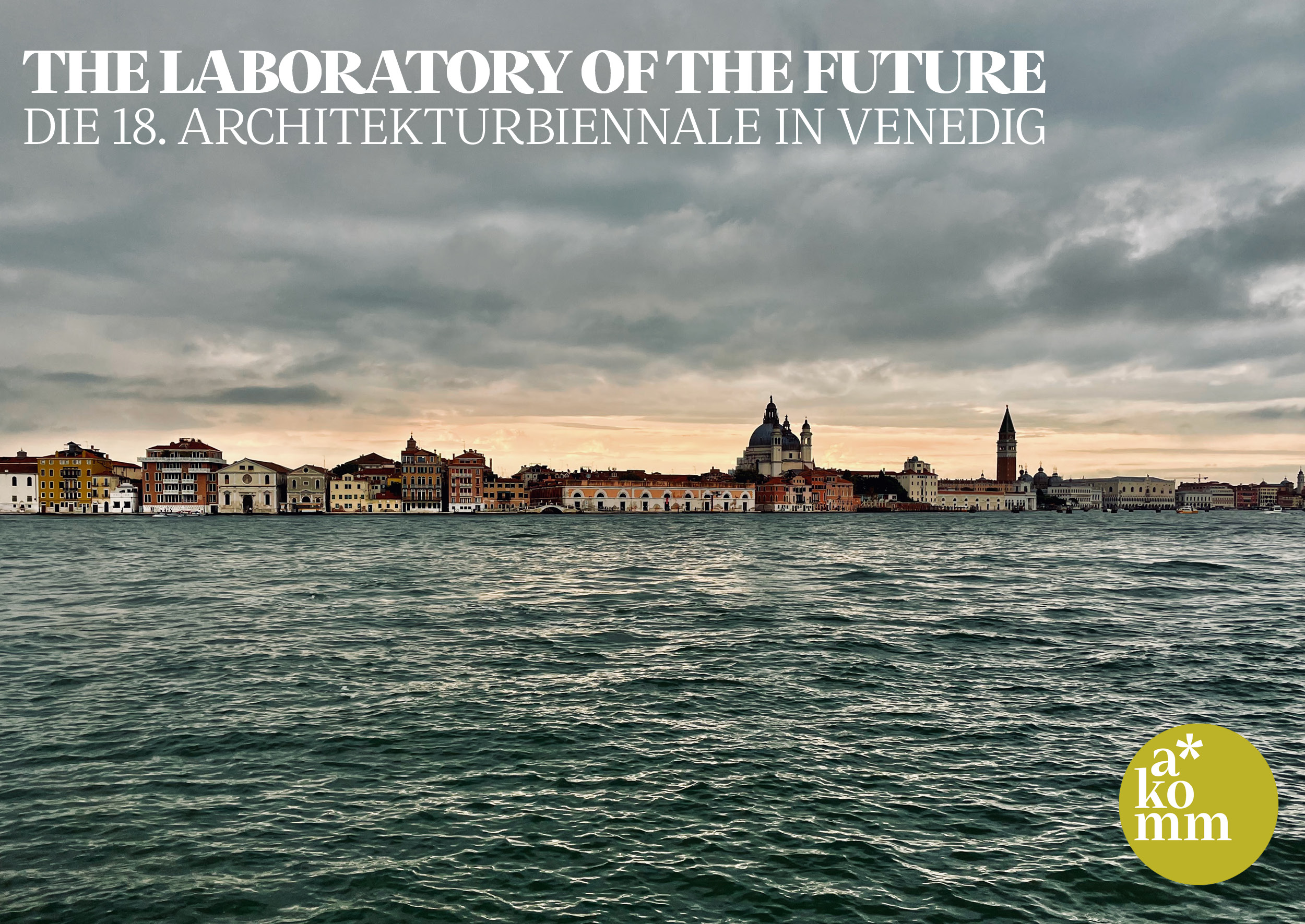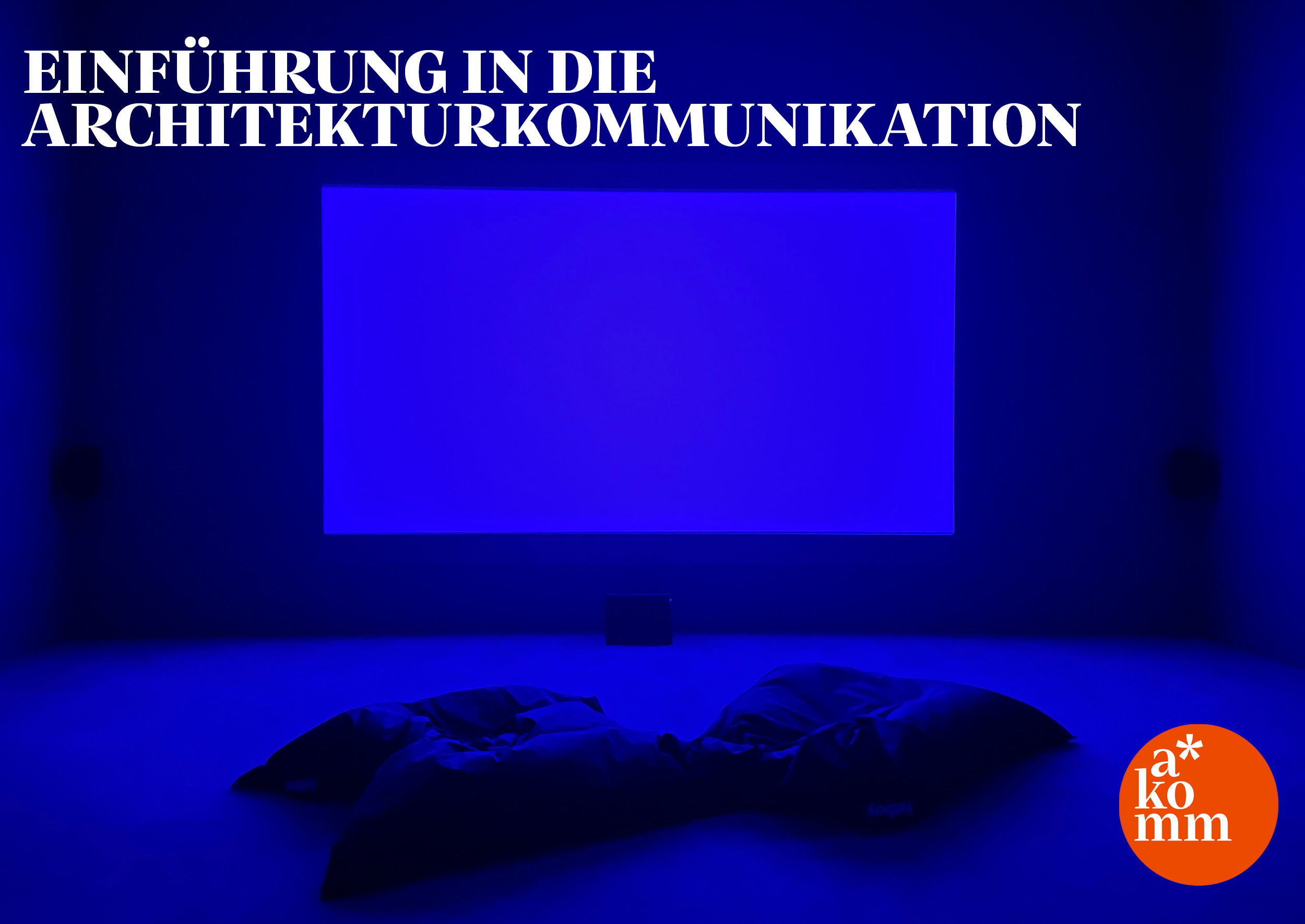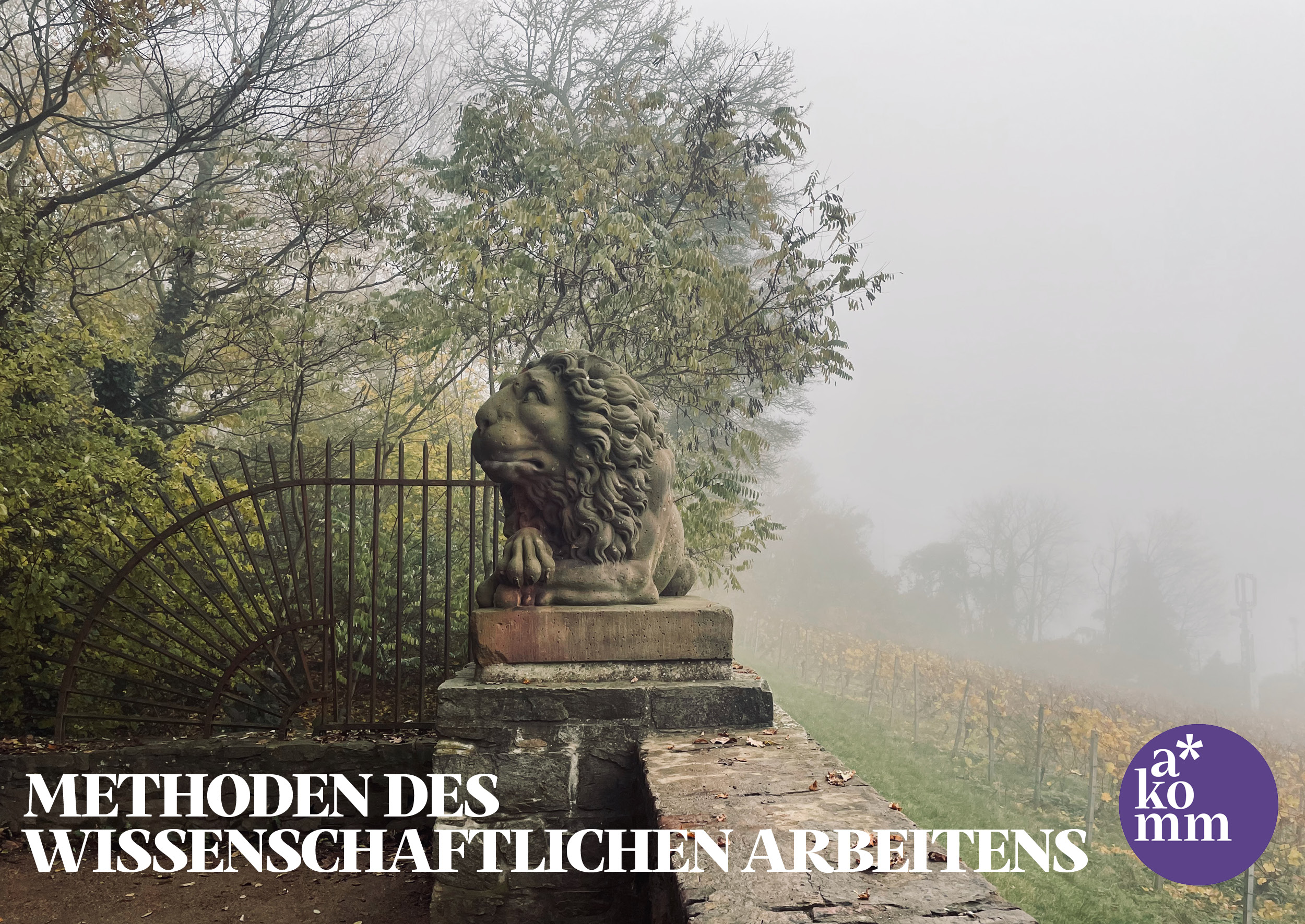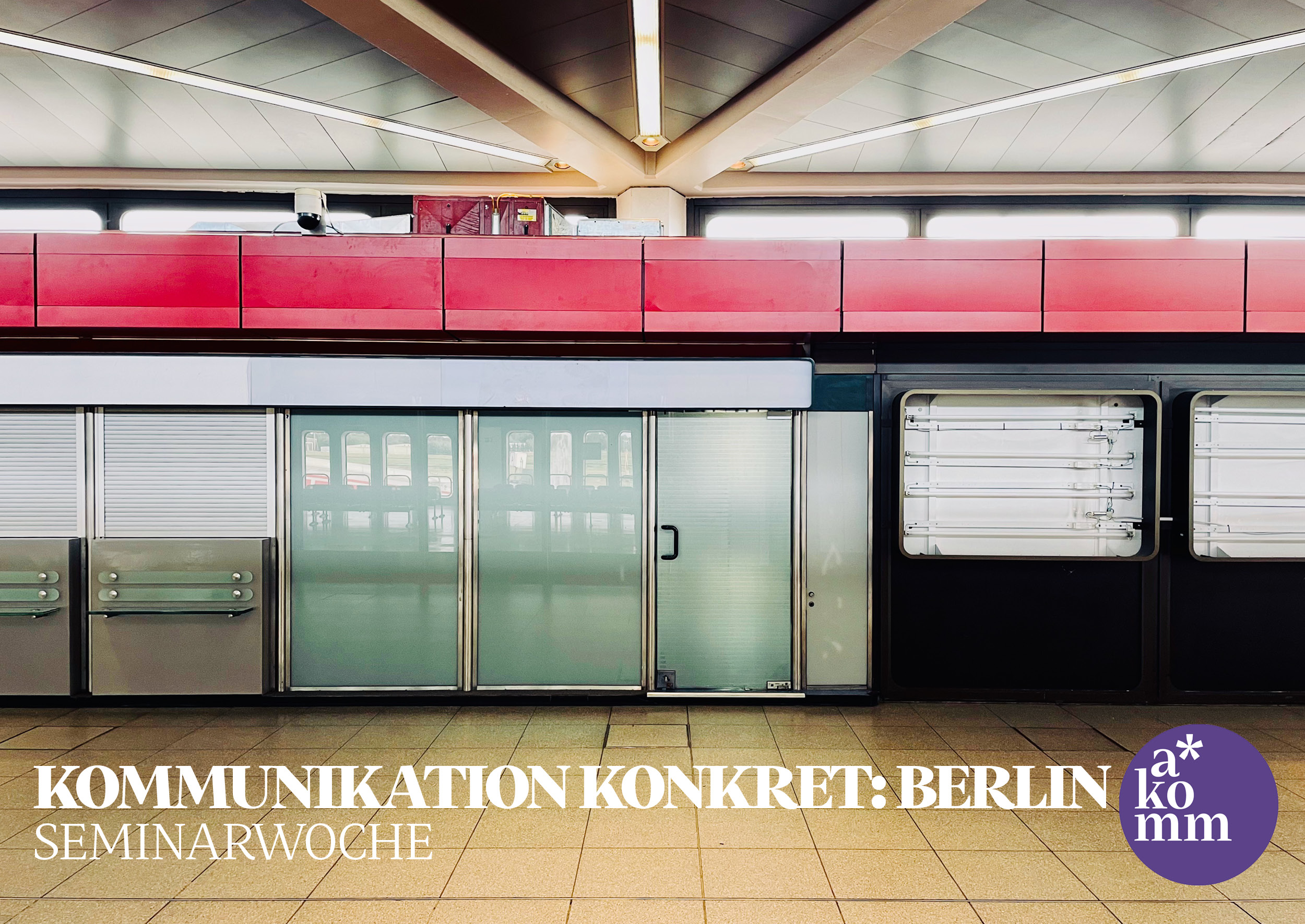Die Architekturbiennale in Venedig ist die weltweit wichtigste Veranstaltung für die Architekturkommunikation. Sie vereint fast einhundert Einzelausstellungen und gibt damit nicht nur einen weltweiten Überblick zu aktuellen Themen und Positionen im Bereich von Architektur und Urbanismus, sondern auch zum derzeitigen Stand kuratorischer Praxis. Das geschieht vor dem einzigartigen Hintergrund der Stadt Venedig, die selbst als eine permanente Architekturausstellung betrachtet werden kann. Das Seminar dient der fundierten Einarbeitung in Struktur und Geschichte der Stadt Venedig sowie von Konzept und Entwicklung der Biennale. Es findet seinen Abschluss in einer Exkursion, auf der wir Stadt und Ausstellung intensiv erkunden und diskutieren.
The Laboratory of the Future. The 18th International Architecture Exhibition in Venice
The Architecture Biennale in Venice is arguably the world's most important event for architectural communication. It brings together almost one hundred individual exhibitions and thus provides not only a worldwide overview of current themes and positions in the field of architecture and urbanism, but also of the current state of curatorial practice. This takes place against the unique background of the city of Venice, which can itself be regarded as a permanent architectural exhibition. The seminar serves as a sound introduction to the structure and history of the city of Venice as well as to the concept and development of the Biennale. It concludes with an excursion during which we will intensively explore and discuss the city as well as the exhibition.
Einordnung: Master, Wahlpflicht
LV-Nr.: 1710452
Modul: Architekturkommunikation [M-ARCH-103626], Sondergebiete der Architekturkommunikation [M-ARCH-103651]
SWS/LP: 2/4
Teilnehmer*innenzahl: max. 25
Regeltermin: Donnerstag, 08:00–09:30 Uhr
Erster Termin: Donnerstag, 19.04.2023, 09:45 Uhr
Ort: Geb. 11.40, R013 (Seminarraum Internationaler Städtebau)
Pflichtexkursion: Venedig, 01-06.10.2023
Betreuung: Prof. Dr. Riklef Rambow, Lama Alkadi, M. Sc.
Die Vorlesung führt in Theorie und Praxis der Architekturkommunikation ein. Es werden die wichtigsten Fragestellungen, Anwendungsbereiche, Strategien und Instrumente der Vermittlung von Architektur und Stadt vorgestellt und anhand aktueller Beispiele diskutiert. Die Vorlesung findet vollständig in Präsenz statt. Zu jeder Vorlesung wird ein ausführlich kommentierter Foliensatz mit Testfragen und Übungsaufgaben bereitgestellt, der ein selbstständiges Erarbeiten der Inhalte ermöglicht.
Introduction to the Communication of Architecture
This lecture series serves as an introduction to the theory and practice of Architectural Communication. The central problems are formulated, important fields of application are presented, useful strategies and tools for communication are introduced and discussed in terms of strengths and weaknesses. The lecture takes place entirely in presence. For each lecture a detailed annotated set of slides including test questions and exercises is provided, which enables independent study of the content.
Einordnung: Pflichtvorlesung Bachelor, 4. Semester
LV-Nr.: 1710450
Modul: Architekturkommunikation und Wissenschaftliches Arbeiten [M_ARCH_103565]
SWS/LP: 2/2
Teilnehmer*innenzahl: unbegrenzt
Regeltermin: Donnerstag, 9:45–11:15 Uhr
Erster Termin: Donnerstag, 20.04.2023, 9:45 Uhr
Ort: Geb. 20.40, Fritz-Haller Hörsaal (HS37)
Prüfung/Abgabe: 03.08.2023
Betreuung: Prof. Dr. Riklef Rambow
Die Vorlesung vermittelt, welche Bedeutung wissenschaftliche Methoden für die Architektur haben. Nach einer Einführung in die Grundlagen der philosophischen Erkenntnis- und Wissenschaftstheorie werden verschiedene Strategien der Erkenntnisgewinnung vorgestellt und anhand von klassischen und aktuellen Beispielen auf ihren Wert für die Forschung im Bereich von Architektur und Stadt untersucht. Die Vorlesung findet vollständig in Präsenz statt. Zu jeder Vorlesung wird ein ausführlich kommentierter Foliensatz mit Testfragen und Übungsaufgaben bereitgestellt, der parallel ein selbstständiges Erarbeiten der Inhalte ermöglicht.
Scientific Methods for Architecture
The lecture series explores meaning and importance of scientific methods for the discipline of architecture. Following a short introduction to epistomology as well as to philosophy and sociology of science, different strategies of knowledge production are presented and tested for relevance by analysis of classical as well as contemporary studies in the fields of architectural and urbanistic research. A detailed annotated set of slides including test questions and exercises is provided for each lecture, which enables independent study of the content.
Einordnung: Pflichtvorlesung Bachelor, 4. Semester
LV-Nr.: 1710451
Modul: Architekturkommunikation und Wissenschaftliches Arbeiten [M_ARCH_103565]
SWS/LP: 2/2
Teilnehmer*innenzahl: unbegrenzt
Regeltermin: Donnerstag, 11:30–13:00 Uhr
Erster Termin: Donnerstag, 20.04.2023, 11:30 Uhr
Ort: Geb. 20.40, Fritz-Haller Hörsaal (HS37)
Prüfung/Abgabe: 03.08.2023
Betreuung: Prof. Dr. Riklef Rambow
Architektur und Stadt entstehen durch Kommunikation und Konflikt. Nirgendwo kann man das besser sehen und erleben als in Berlin. Wir werden in vier intensiven Tagen wichtige Orte vergangener und gegenwärtiger Architekturdebatten aufsuchen, von den Internationalen Bauausstellungen 1957 und 1984/87 über die Museumsinsel und das Kulturforum bis zur Stadtmitte mit dem Humboldtforum und der geplanten Bauakademie sowie im Kontrast dazu "alternative" Planungsstandorte wie den Alten Blumengroßmarkt oder das Spreefeld und den Holzmarkt. Dabei werden wir uns überwiegend zu Fuß vorwärts bewegen, um die Auswirkungen von Planungsentscheidungen und Verhandlungsprozessen auf das Erleben und Benutzen von Stadt konkret und am eigenen Leib zu erfahren.
Concrete Communication: Berlin
Architecture and the city emerge out of communication and conflict. Nowhere can you see and experience this better than in Berlin. We will spend four days walking through the city of Berlin to visit important sites of past and present architectural debates, from the International Building Exhibitions of 1957 and 1984/87 to the Museum Island and the Kulturforum to the city centre with the Humboldt Forum and the planned Bauakademie as well as, in contrast, "alternative" planning sites such as the Old Flower Market or the Spreefeld and Holzmarkt. We will move around by walking on foot as much as possible in order to be able to examine the effects of planning decisions and negotiation processes on the experience and use of the city as concretely as possible.
Einordnung: Seminarwoche
LV-Nr.: 1710455
Modul/Teilleistungen: T-ARCH-111342
SWS/LP: 2/2
Veranstaltungsart: Block (B)
Veranstaltungsform: Präsenz
Veranstaltungsort: Berlin
Teilnehmer*innenzahl: max. 20
Blocktermin: 30.05.-02.06.2023
Erster Termin: wird über ILIAS bekanntgegeben
Betreuung: Prof. Dr. Riklef Rambow, Lama Alkadi, M. Sc.




